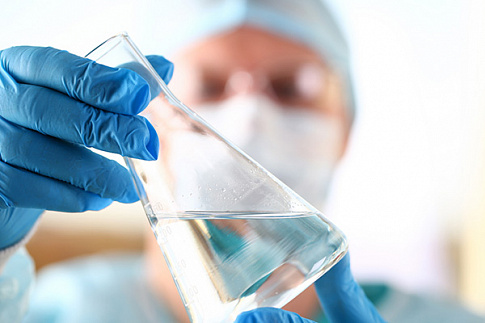
Water for pharmaceutical application is widely used in the manufacture of medicines and feeds the general stages of processes, such as washing machines, autoclaves, systems for preparation of water for injection, circulating water. In the central distribution system, filtering through cartridge microfilters is only one of several processing steps. Other steps (ion exchange, filtration through a layer of coal, precipitation) can strongly contaminate the water with a fine fraction of resin and coal and require additional purification through cartridge microfilters.
Process requirements
- Prefilters should effectively remove most particles and colloidal contaminants, should have high durty capacity, natural hydrophilicity, excellent heat resistance, high flow rates and a stable high resource.
- Finishing membrane filters should effectively remove microorganisms and bacterial endotoxins (pyrogens), subject to integrity testing. The coordinated combination of the prefilter and the final filter provides a high flow rate and stability of the working resource.
Purposes of filtration
Prefiltration
- to remove colloids and particles to extend the life of the final filters.
Finishing filtration
- to remove particles, microorganisms and endotoxins.
Recommendations for filter cartridges
Prefiltration: prefilters EPVg.P and EPNS
For qualitative preliminary and final depth filtration we recommend filter cartridges EPVg.P. The filter cartridges of this series are capable of providing high flow rates, excellent mechanical and thermal stability, can operate at a constant temperature of 90 ºC, have low initial resistivity, high retention of microparticles, do not release fibers into the filtrate, are manufactured according to ISO 9001: 2000. In most cases, filter cartridges EPVg.P with a rating of 1-5 microns are recommended.
For rough preliminary filtration of water on ampoules (from glass fragments and other large mechanical inclusions), we recommend the repeatedly regenerated EPNS.
Final filtration
For final (sterilizing) filtration, when endotoxins removal is not required, or to decrease the bioburden before a charged filter, EPM.K- 045/020 based on a polyamide membrane are applied. If the filter is used at high operating temperatures (over 60 ° C), we recommend a EPM.PS-045/020 based on a high-performance heat-resistant polyethersulfone membrane.
To remove of bacterial endotoxins, we propose filter cartridges EPM.K+ -045/020 based on a positively charged membrane with pore size 0.45 / 020 µm. The charged hydrophilic filter cartridge EPM.K+ is specifically designed to remove bacterial endotoxins and viruses from aqueous pharmaceutical grade systems. Endotoxins can easily pass through a conventional uncharged sterilizing filter with a pore size of 0.2 μm, because their size is much smaller than the pore size of the membrane. However, due to a positive charge, the EPM.K+ is capable to retaine negatively charged endotoxins. The results of the membrane study see here.
Sterilizing air filtration ("breathing" filters): EPM.F4.
We recommend membrane filter cartridges made of polytetrafluoroethylene EPM.F4 with 0.2 μm pore size.
Filter housings: DS-1-D(-/-)M – sanitary construction.
For the organization of the filtration process we propose the body equipment - the filter housing of the series DS sanitary construction made from high-quality steel AISI 316L or AISI 304.
Integrity test: TECHNOCHEK.
Device for monitoring the integrity of membrane filtration systems - TECHNOCHEK.
For the final choice of the scheme for the filtration process, please contact the specialists of NPP “Technofilter”.